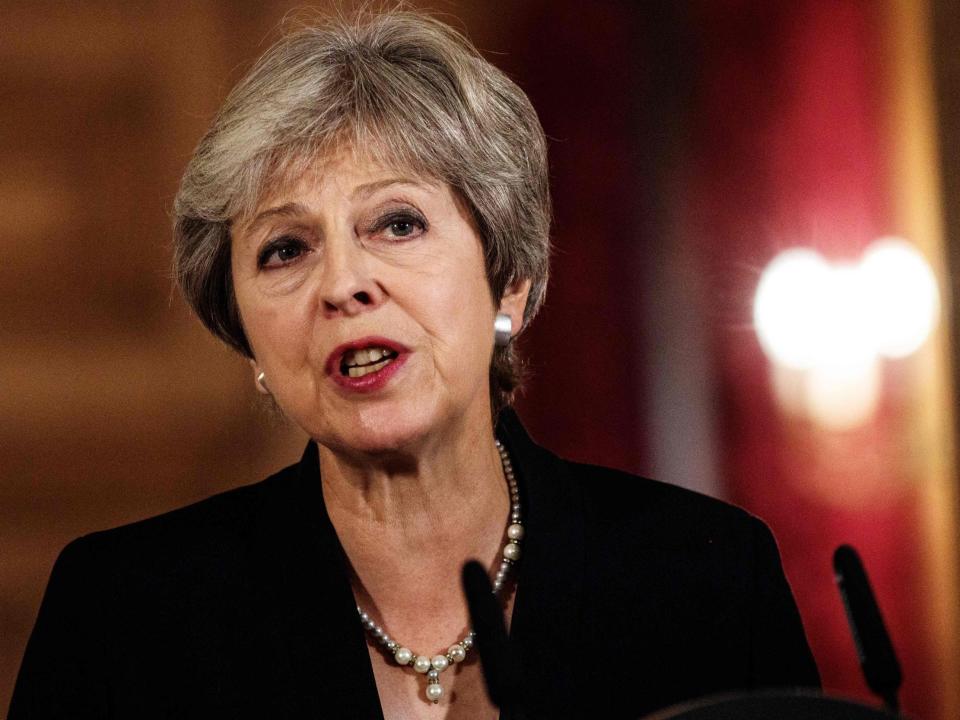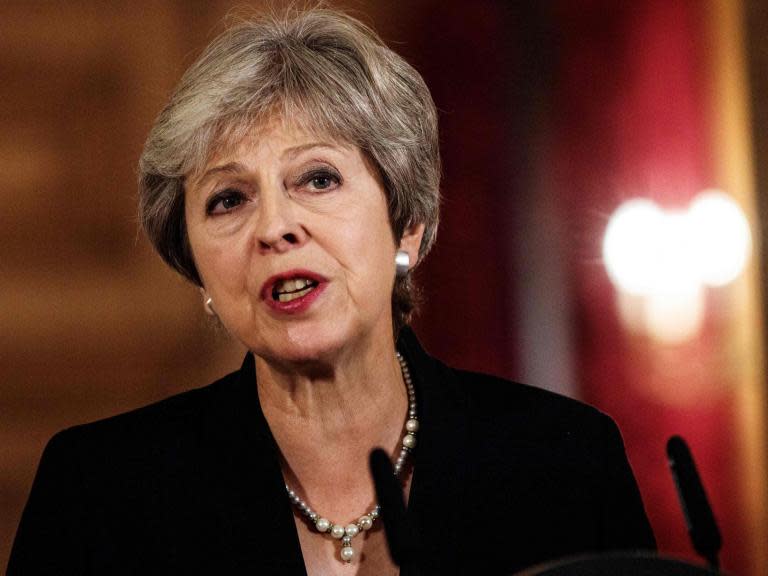The Conservatives want to suppress a debate on Brexit at their conference – but Tories like me are fighting back
While the Labour conference has been dominated by discussion about whether to give the British people a final say over the outcome of the Brexit negotiations, at next week’s Conservative equivalent the issue features in only one fringe meeting, which, despite having three former ministers as speakers, has been excluded from the official conference handbook and website in an attempt to prevent delegates from hearing the arguments. This is bizarre.
While only 10-15 per cent of the electorate back the government’s Chequers plan, 50 per cent or more want a people’s vote on our final Brexit destination. Why is the party of free speech closing down debate on the biggest issue of the day? Is it afraid that the arguments may be too compelling to ignore?
What is the Tory case for a final say referendum? It rests mainly on the concept of “informed consent”, the idea that people should know what they are getting into before they commit to any major decision. It’s a normal part of life outside Westminster. Buying a house? You get to do a survey before you commit. Buying a car? You can test drive it first. Having an operation? You need to understand the implications and sign a form to that effect before a doctor will go ahead. Purchasing insurance? You have a two week “cooling off” period to read the small print, after which you can change your mind. Acquiring a business? You can do what is called “due diligence” to make sure the sellers’ promises were accurate – if they weren’t you can back out, or alternatively change the terms of the deal.
But Brexit? “Tough luck mate, lump it or like it” – or so we are told.
For Tory backers of a people’s vote that’s just not good enough. It doesn’t fly because the Brexit we’re likely to get isn’t at all the Brexit we were promised. We were told that we’d have friction-free access to EU markets after we leave; that the negotiations would be easy because the EU needs us more than we need them; that immigration would fall; that we’d be £350m a week better off and that the NHS would be saved; that the economy would boom. Nothing has worked out.
Growth has slipped from the top to the bottom of the major economies; inward investment has dried up; companies like Panasonic and Unilever are leaving. The NHS, where 10 per cent of doctors and nurses were from the EU in 2016, is facing staff shortages. Immigration from the EU is falling, but from Asia and Africa is rising. The £350m was a myth.
Above all, the deal is far from easy. It has proven nightmarish, with the UK constantly on the back foot in the talks and the EU ruling out – as it has said from the start – an approach where we can have the bits of the single market we want without the rest. The prime minister is dancing on the head of a pin, telling the EU that we are fully prepared for a no deal Brexit (which we aren’t), while simultaneously telling the British public (correctly) that it would be an unmitigated disaster.
We are now, most probably, facing a choice between hard Brexit (a Canada option where we are treated by the EU as any other third country) and a harder Brexit (no deal). Either one of these would disrupt supply chains, leave us subject to EU regulations if we want to trade there without any say in making them and would deprive us of our place at our own continent’s top table.
Parliament meanwhile watches passively as the mess unfolds, despite the fact that a significant majority of MPs either want to remain in the EU or would accept a soft Brexit where we stay in the single market and customs union. This is because the current party system isn’t able to cope with an issue which cuts so strongly across party lines. Parliament is heading for deadlock on the most important issue we’ve faced for a generation. We need a solution.
We’ll soon know what Brexit will look like. The British people will be in a position to give informed consent to it, or to withhold such consent. They have that right. For Leavers, whose narrow victory in 2016 has been marred by allegations of dishonesty and overspending, it can provide a final validation – something they will never again have a chance to secure as overwhelmingly pro-Remain younger voters join the electoral roll. For Remainers it offers a chance to show the electorate what the reality of Brexit means and to offer – this time around – a more positive case for EU membership. And for all of us, it can put a stop to the endless Brexit discussions which have come to dominate our lives because a final say would be, at long last, final.
Simon Allison is the chairman of Conservatives for a People’s Vote

 Yahoo News
Yahoo News 

